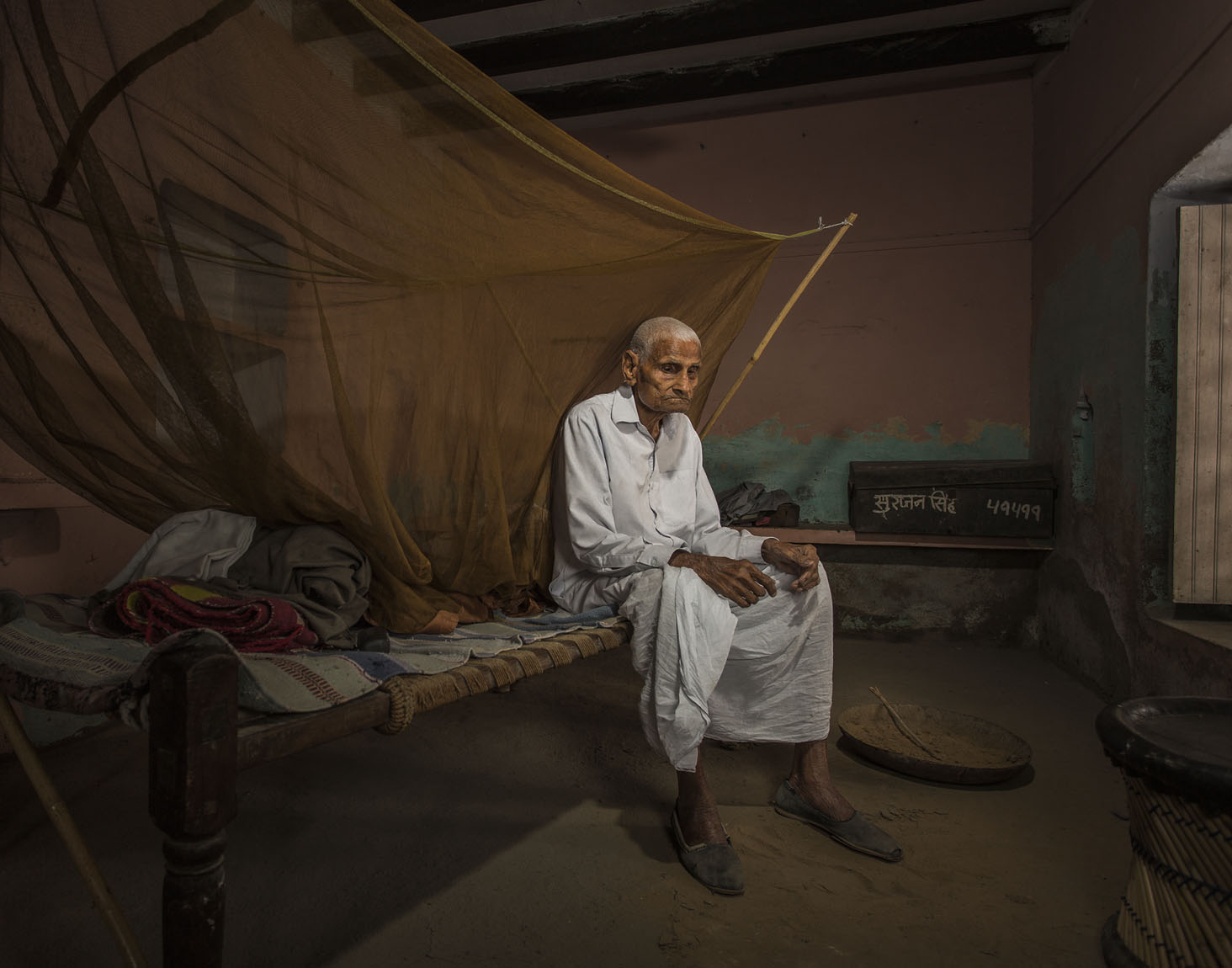My name is Surjan Singh, and I was born on July 29, 1921 in Kharia, Delhi. I had a pretty good childhood. India didn't have a great education system, but I made the most of my formative years. I was a playful, energetic child, always interested in having fun in my village.
When I reached 15, my family believed it was the time to begin working on the family farm. The fun of my childhood was over when I realized just how bad things truly were. The British were in control in India, and they were basically pillaging our land.
So many people across India were forced to work in the agricultural industry, but eventually it got to the point where so many were doing this so that it was very hard to actually succeed. Besides that, there was mass malnourishment across India, and my family felt it as bad as everyone else. What little farmland we had, it wasn't producing enough to keep us properly fed.
How would I survive if I was literally dying of hunger? So by the age of 18, I felt my best option was to volunteer for the Army. They paid 15 Rupees a month, which was vital income for my family. Additionally, I wanted to serve my country in this terrible conflict that was going on.
Upon enlistment, I was sent to Madras for basic training. My memory is a bit hazy, but I can remember learning how to drive, how to conserve my body, and how to be an effective soldier overall. We used to run for kilometers at a time. In the military, I also became familiar with pistols, hand grenades, and rifles. By the time I had graduated basic training, I felt like I was suited for combat.
We Indians were the lowest rank in the entire Allied Forces. Our entire command was British. They didn't even have the decency to learn our language, we had to learn theirs. We would be in the trucks, training, and they were saying, "go left, go right". As we had such a poor education system, we had no idea what they were saying sometimes, but we soon had to learn or risk catastrophe. A misunderstanding in a combat situation could be fatal.
We got deployed to Burma first. Japan was a formidable enemy. We had tanks, machine guns, rifles, and even horses for combat. All of us were prepared for the worst, but it soon became apparent we weren't prepared for the Japanese tactics. The Japanese were waging aerial attacks against us, shooting and even throwing bombs out of planes. Our regiment spent most of the time hiding in the mountains and forests from overhead attacks. We had weapons that were capable of many things on the ground, but not in the air. So we couldn't even use them! What would a rifle or even a machine gun do against a plane?
I can remember once, we were traveling through Burma and I was eating in the car. Our cars were relatively low quality. Instead of windows, we put up bamboo sticks to shield us. The car made a sharp turn and I was flung from the car like a cartoon character! It's funny in hindsight, but my fractured knees and one month stay in the hospital wasn't very funny.
One story that's not funny at all is what happened to a gentleman from my village that was also in the war. He, along with a few other soldiers, was arrested by the Japanese, and kept as POWs for six years. Many in the village thought he was dead as there was no trace of him. He very nearly was, as he told us later Japanese were going to kill him. They had thousands of POWs, but after losing the war were in no condition to feed and maintain all of them. Their initial plan was to mass murder the Indians, but the revolutionary Subhas Chandra Bose's affiliation with Japan got him and the others spared. On his say, all Indian prisoners were released and sent back to India.
In 1945, we heard the atomic bomb was dropped. As devastating as the effects were in Hiroshima, people a hundred kilometers away were also getting sick. Our commanders gave us masks, so we wouldn't be affected by the radiation. After we heard the news about Japan surrendering we were ecstatic. We all chanted, "We're saved!" and rejoiced in the possibilities of going back home. Not long after, we were sent back to India.
Once I got back to India, I was faced with the same issues of my past. I wasn't educated, so I couldn't get a decent job. I went back to the family farm, and lived off my pension from the Indian Army.
Soon, India was divided, and the Muslim portion of the country was renamed Pakistan. There was a lot of tension that grew into a conflict, so splitting the country was seen as the best alternative.
After retiring from the Army, I married my wife Khajini Devi in the 1960s, and had four sons and one daughter. Today, I mostly spend my time relaxing with family. This life is much better now.
